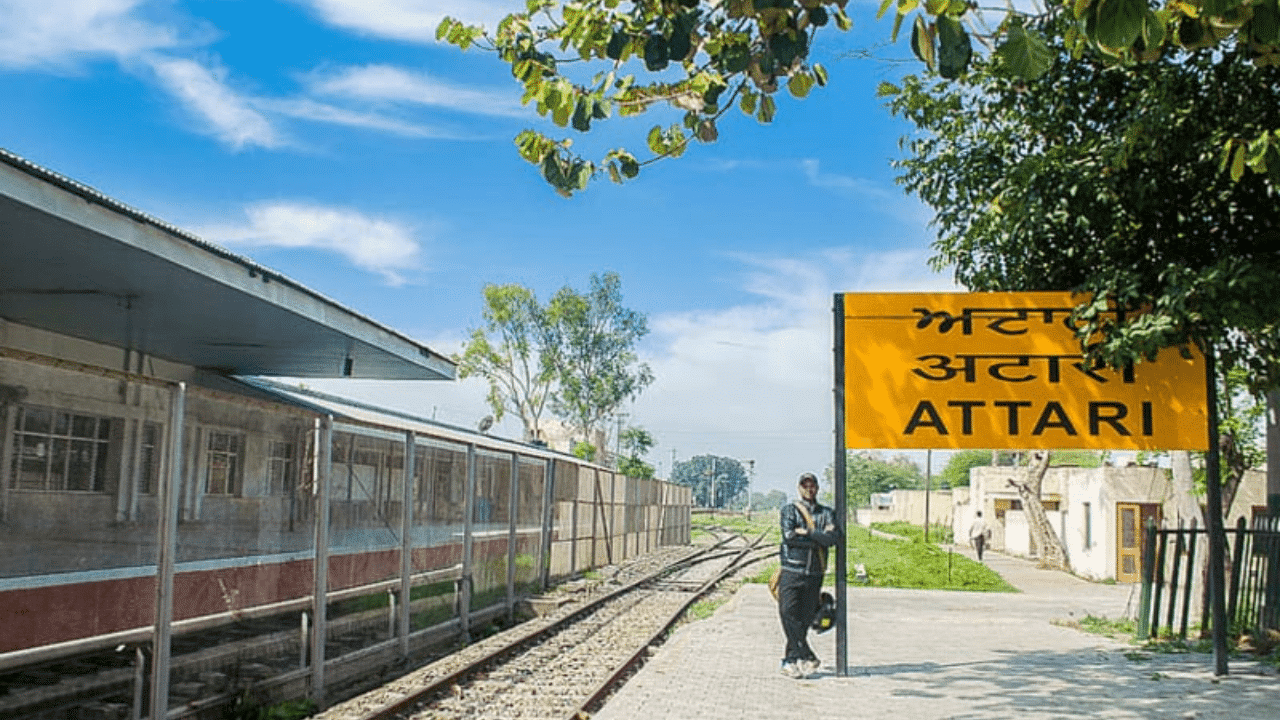Located near the India-Pakistan border in Punjab, Attari Railway Station holds a rare distinction — it is India’s only railway station where passengers are required to show both a valid train ticket and a passport. This unique combination gives the station the dual identity of a transportation hub and an international checkpoint.
Situated just 3 kilometers from the Wagah-Attari border, this small but historically significant station has played a crucial role in facilitating people-to-people connections and cross-border travel between India and Pakistan.
Why Is a Passport Required at Attari Railway Station?
Unlike other train stations across India, Attari functions as an international transit point. It serves passengers traveling on special trains like the Samjhauta Express (when operational) and international goods trains, which connect India and Pakistan.
Because of its proximity to the international border, Attari Railway Station has immigration and customs counters operated by Indian officials. Just like at an airport, passengers must present their:
- Valid Passport
- Visa for the destination country
- Train ticket
This makes Attari the only railway station in India with passport control facilities — essentially functioning like a land border terminal.
A Symbol of Diplomacy and Division
Attari station has long stood as a silent witness to the fluctuating political tides between India and Pakistan. The now-suspended Samjhauta Express, once a symbol of diplomatic thaw, would depart from Attari to reach Lahore via Wagah, carrying families, businesspeople, and cultural ambassadors across the border.
Even today, Attari is a major cargo route for India-Pakistan trade, especially for agricultural and perishable goods. Freight trains, subject to stringent checks, also pass through this gateway.
The Attari Station Experience: A Unique Journey
Travelers arriving at Attari experience something rarely seen at other Indian railway stations:
- Armed security and fencing all around
- Immigration officers stamping passports
- Luggage scanning and verification
- Strict customs checks
- Announcements in multiple languages, including Urdu and Punjabi
It creates the feel of an international airport — but at a modest rural railway station surrounded by mustard fields and history.
Historical and Strategic Significance
Attari is not just a transportation hub; it is a geopolitical landmark. It was here that trains ran freely before Partition, linking Delhi to Lahore and beyond. Post-1947, the station became the final Indian stop on the rail route to Pakistan.
It continues to play a crucial role in:
- Humanitarian exchanges
- Cross-border diplomacy
- Trade and logistics
- Cultural interactions
Attari Railway Station offers a powerful glimpse into India’s historical, cultural, and political ties with its neighbor. As the only Indian station requiring both a train ticket and a passport, it reminds us that railway lines can be more than just tracks — they can be bridges of connection, emotion, and sometimes, tension.
Whether it’s a symbol of hope or division, Attari remains a uniquely Indian gateway to the world.



